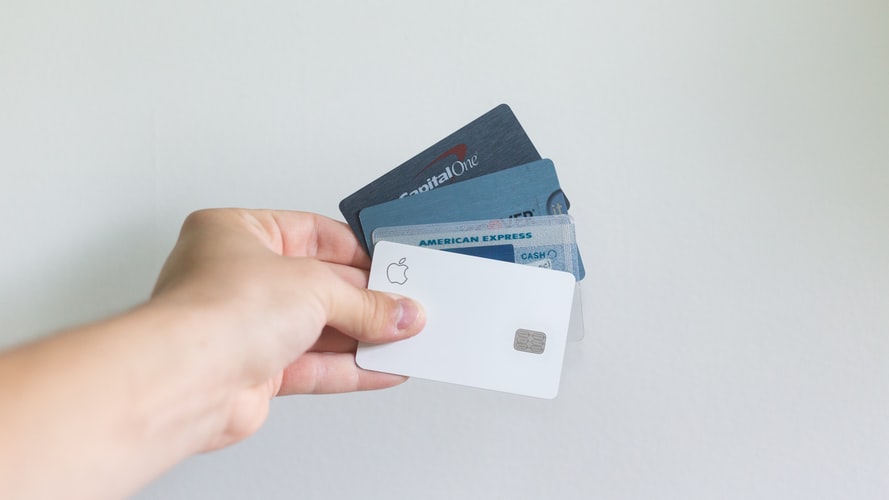Your credit score can be a bit of a touchy subject. Credit is an important aspect of your financial life, though, so it’s time to open up the conversation!
First, we’ll go over a few common questions regarding credit. Then we’ll drop a few tips that can help you build your credit and build a bright financial future!
Why Does My Credit Score Matter?
Your credit score is what determines whether or not lenders will approve you for a loan. The idea is that it shows whether or not they can trust you to make your payments.
Whether or not you’re eligible for loans can have a significant impact on your life since it includes loans on vehicles or mortgages. If you’re planning on buying a home in the next few years, building your credit score should definitely be a priority!
What Affects My Credit Score?
There are plenty of factors that may affect your credit score—from missing cell phone or credit bill payments, to checking your credit score too often, to using up too much of your credit limit. However, not all of your bills affect your credit score—only if the data is sent to a collection agency or a credit bureau.

Your credit score is calculated by a credit bureau. In Canada, there are two main credit bureaus: Equifax and TransUnion. These institutions collect your financial data in order to create credit scores and credit reports.
Not sure how to see your credit score? You can get your free credit score from Credit Karma. It’s also important to know the difference between soft credit checks and hard credit checks, as hard inquiries can affect your credit score.
What’s a Good Credit Score?
Ideally, your credit score should be above 700, which is considered good credit. A credit score over 800 is considered excellent, so if you’re one of those people, give yourself a pat on the back!
However, many people fall in the 600 range. And even if you have a lower score, don’t panic! There are ways to improve your credit, and educating yourself about smart credit decisions is the first step.
How Can I Improve My Credit Score?
Here are a few great ways to build your credit rating.
1. Open Accounts With Companies Who Report to the Credit Bureaus
If you’re paying your bills on time, that’s data that can help improve your credit score. However, not every company reports to the credit bureaus.
If you have an account (like a cell phone, for example) with a company who doesn’t report to the credit bureaus, that means that even if you pay your bill on time every month, it won’t have a positive impact on your score.
2. Using a Credit Card (Wisely!)
Of course, using a credit card is one of the fastest and most effective ways to build credit. However, it’s super important that you’re using it correctly, because it can bring your credit down just as quickly as it can build it up. Dun dun dun!
Here are few tips to make sure you’re actually using your credit card (or line of credit) to build your credit:

Get approved for a credit card. Sometimes, this first step isn’t that easy—especially if you don’t have much credit to begin with (Catch 22, I know!). However, you can still start building your credit by asking to be an authorized user on someone else’s credit card, having someone cosign on your credit card, or getting a secured credit card.
Leave a running balance. Instead of paying off your full balance every month, leave a running balance on your credit card. This signifies to the credit bureaus that you’re actually managing credit, and not just using it like a debit card.
But, not too high of a balance. It’s important to make sure that you’re making your minimum payments and that you aren’t running too high of a balance, or else you’ll be seen as a higher risk.
Don’t max out your credit card. Maxing out your card is a sign to lenders that you might be a higher risk, and will hurt your credit. You should try to never use more than 75% of your available credit.
In fact, it’s best if you can try to use less than 35% of your available credit.
For example, if your credit limit is $1,000, you should try to keep your balance under $350. If your credit limit is $5,000, you should try to keep your balance under $1,750. This is true even if you’re paying off your full balance every month!
So, if you’re able to raise your credit limit (but not the amount that you’re spending), that’s usually a good idea!
Get an RRSP Loan from a Financial Institution
Taking out an RRSP loan from a financial institution is a double whammy—you can build your credit while also saving for retirement!

How does this work? For example, a financial institution loans you $1,200 to put into an RRSP account. Then, you make monthly payments in order to pay back the financial institution. Paying back the loan builds your credit, while the RRSP acts as a savings account for your retirement or for a down payment if you’re a first time home buyer in Canada.
I hope this information helped clarify the basics of how credit works and inform you about some ways to improve your credit score! If you have other questions about finances or how to secure your financial future, as a financial educator, I would be happy to help! Let’s chat and get you on the right financial path.
Disclaimer: this advice is all a matter of opinion and that each individual should talk to their personal advisor before implementing any changes to their plans or finances. Every case and situation is unique!

